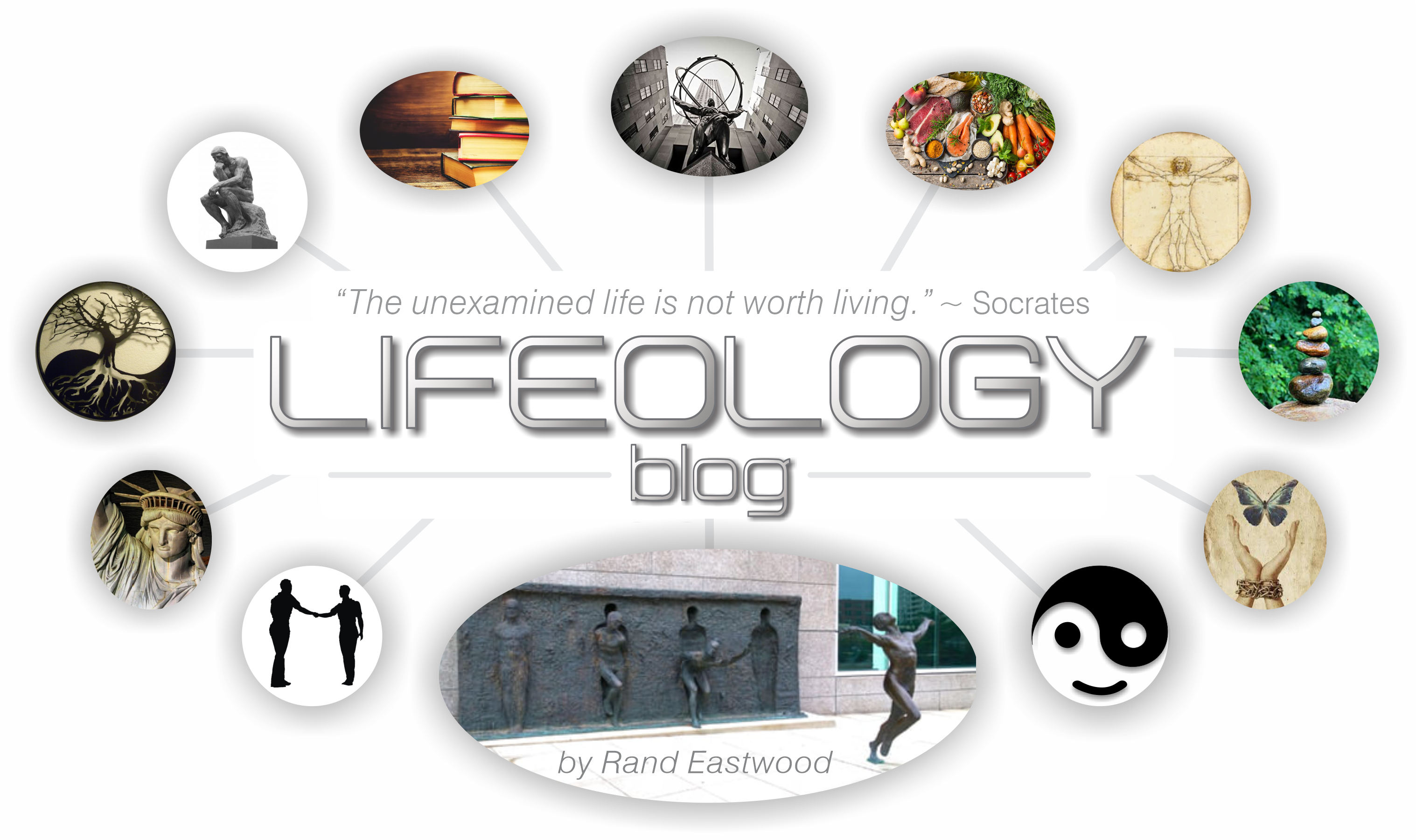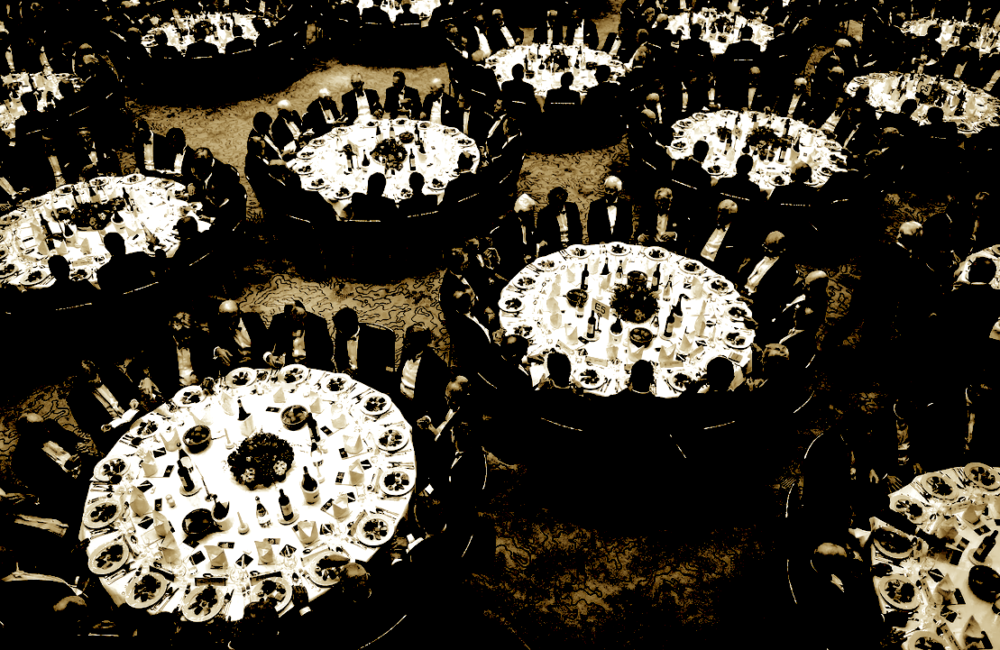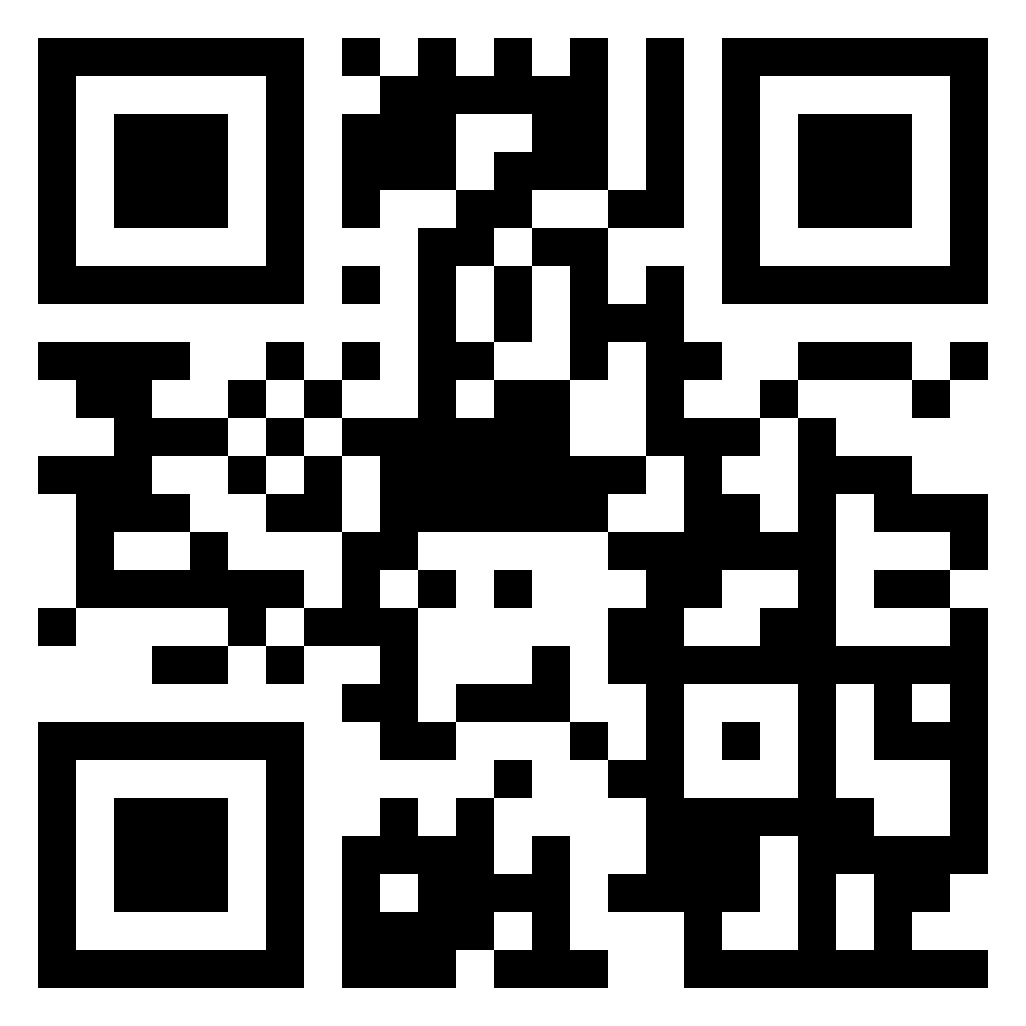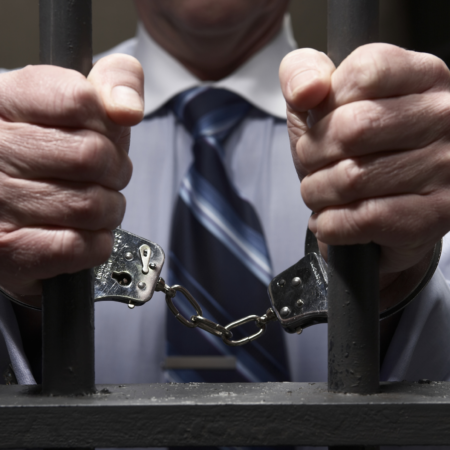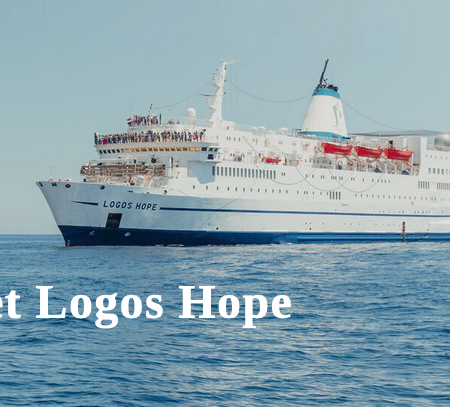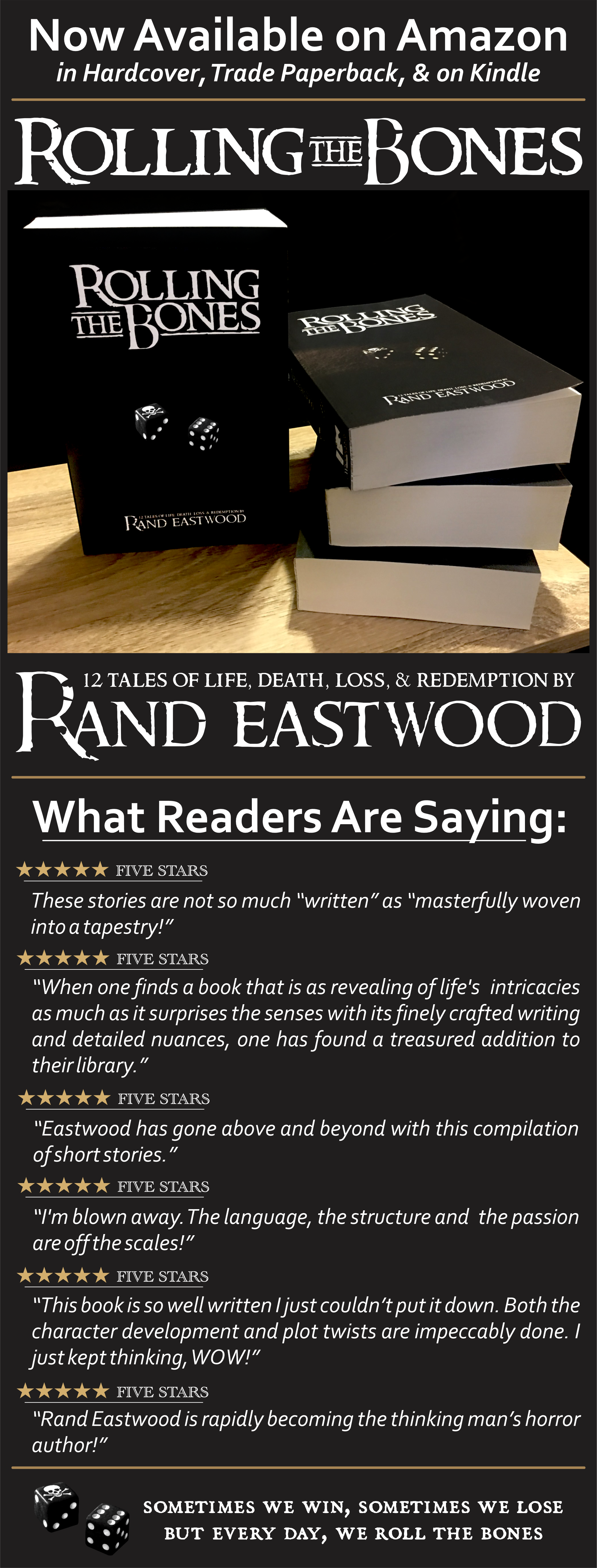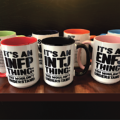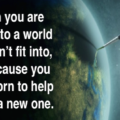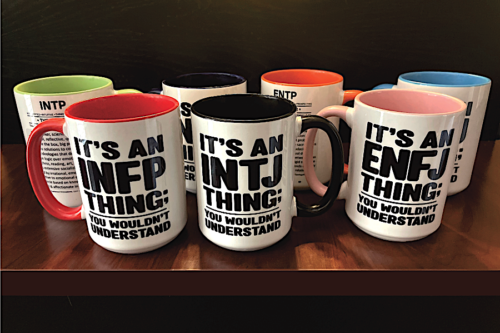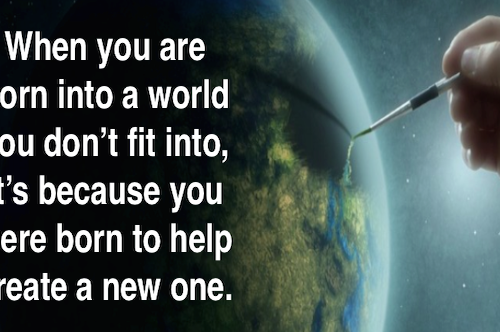Questioning Institutions of Authority
Contrary to popular belief, Jesus Christ was not charged with and thereby executed for blasphemyBlasphemy: In theology, the crime of assuming to oneself the rights or qualities of God., but seditionSedition: incitement of discontent or rebellion against a government.. He publicly questioned the authority of the Roman empire, as well as the leaders of the church. In other words, he was a dissident who brought into question the authority and/or legitimacy of the established institutional order.
In his article From Jesus Christ to Julian Assange: When Dissidents Become Enemies of the State, civil liberties attorney and author John W. Whitehead of Rutherford Institute wrote:
“Indeed, it is fitting that we remember that Jesus Christ—the religious figure worshiped by Christians for his death on the cross and subsequent resurrection—paid the ultimate price for speaking out against the police state of his day.
A radical nonconformist who challenged authority at every turn, Jesus was a far cry from the watered-down, corporatized, simplified, gentrified, sissified vision of a meek creature holding a lamb that most modern churches peddle. In fact, he spent his adult life speaking truth to power, challenging the status quo of his day, and pushing back against the abuses of the Roman Empire.”
In his book Yes, And…Daily Meditations, Franciscan friar, ecumenical teacher, and author Richard Rohr wrote in the meditation entitled Patriotism as the False Sacred:
“Jesus showed no undue loyalty to his religion or to his country, but radically critiqued both of them whenever they demanded to be worshiped. I challenge you to find one patriotic statement from Jesus. (The one that most people wrongly use about “giving to Caesar” [Mark 12:17] is actually a total dismissal of Caesar’s rights in comparison to God’s rights.)”
And crucifixion was the standard means of execution of seditionists, because it was long, grueling, and horrific—and, most importantly, public. The tortured execution of those pesky seditionists—those troublemakers who publicly questioned the authority and/or legitimacy of the establishment—was put on public display, for all to see.
“See? THIS is what happens to those who question our authority!”
Crucifixion was a method of torture, not merely death; Jesus is thought to have suffered around six hours before dying; though for some, the suffering could take as long as a day or more. It was a horrible way to die, and it was meant to be.
(A Side Note: For a well-researched historical account of the life of Jesus, within the context of the cultural, political, religious, and societal climate of the times, I would recommend the book Zealot: The Life and Times of Jesus of Nazareth, by Reza Aslan).
And the idea of sedition is precisely why, in more recent times, those accused of witchcraft or Satan worship (or any other belief outside those condoned by the established institutional order) were often persecuted, prosecuted, and even executed—not so much out of fear of their activities, but because they brought into question the authority of the established order.
For example, the church has always enjoyed a monopoly on access to God; they can’t be having people going around accessing the spiritual realm outside of the proper channels of the church (and, of course, paying the appropriate tolls for such access) now, can they?
My point: those in power within the existing institutional order for all practical purposes want to be our God—and our only God.
The State Wants Obedience
With the church now being somewhat politically neutered (separation of church and state), and with science potentially discrediting much of the historical teachings of ancient religious texts, many people have abandoned the church, and/or religion altogether; and this abandonment can often leave a void in people’s lives—and guess what? The state is all too happy and willing to step up and fulfill that void!
So today, we are seeing the rise of statismStatism: the principle or policy of concentrating extensive economic, political, and related controls in the state at the cost of individual liberty. the world over. It seems the vast majority of people have come to believe that all things good are bestowed by the state, and all things bad are the fault of those who question the authority and/or legitimacy of the state (i.e., seditionists).
And since the state enables the unchecked manifestation of all that is weak, bad, or even evil in people, then we can readily see the result of this worldwide statismStatism: the principle or policy of concentrating extensive economic, political, and related controls in the state at the cost of individual liberty. manifesting all around us: the evil, the atrocities, the violence, the perpetual lies and fraud, the never-ending wars, the plundering of resources, the lack of stewardship of the planet, the mortgaging of the lives of future generations…in short, the intellectual, economic, spiritual, philosophical, ethical, and cultural bankruptcy of society that proliferates the news each and every day.
And of course, the state, and its propaganda arm (corporate media & big tech) work diligently to keep us all divided and fighting amongst ourselves—be it by race, creed, nationality, religion, sexual orientation, class, education, relationship status, health status, you name it—thus preventing us from forming a unified front and focusing our attention on the true enemy: our oppressors, the powerful people at the top of the established institutional order…the men who would be gods.
Philosopher Aldous Huxley points this out in his book The Perennial Philosophy:
“…the cult of unity on the political level is only an idolatrous ersatzErsatz: made or used as a substitute, typically an inferior one; not real or genuine. for the genuine religion of unity on the personal and spiritual levels. Totalitarian regimes justify their existence by means of a philosophy of political monism, according to which the state is God on earth, unification under the heel of the divine state is salvation, and all means to such unification, however intrinsically wicked, are right and may be used without scruple. This political monism leads in practice to excessive privilege and power for the few and oppression for the many, to discontent at home and war abroad. But excessive privilege and power are standing temptations to pride, greed, vanity and cruelty; oppression results in fear and envy; war breeds hatred, misery and despair. All such negative emotions are fatal to the the spiritual life. Only the pure in heart and poor in spirit can come to the unitive knowledge of God.“
The War On Drugs
But until recently, I hadn’t considered the war on drugs (more accurately, the war on people who wish to experience non-state-approved drugs) to be just one more tool of the establishment to maintain control of the people. Certainly, it’s a war on liberty, as it is a direct violation of the rights of the individual. And certainly, there’s the bribing of the state by corporate interests such as Big Pharma and Big Beer (and perhaps Big Tobacco?) to keep many drugs (such as cannabis) illegal, so they can maintain their monopolies within their respective legalized drug markets.
Drugs Can Prompt Questioning of Authority
But I had never considered the state’s war on drugs in the context of sedition; since some drugs enable people to achieve altered states of consciousness, and therefore question the perceived values (indoctrination) of mainstream society—and thus the authority, legitimacy, or even the need, of the state or the established institutional order—then obviously, those in power will do all they can to prevent that.
I used the aforementioned qualifier “until recently” because I recently stumbled upon the following bit of narrative from Graham Hancock, in an audio clip that was appended to the end of his video presentation Fingerprints of the Gods, of course referencing his book Fingerprints of the Gods.
Here is the entire video, but for those interested, the appended audio clip to which I refer begins at the 1:39:45 mark:
I think what he says at the end is important, as it pertains to one more possible incentive for those in power to perpetuate the insane war on drugs, so I’ve transcribed it, again starting at the 1:39:45 mark:
“Our society today, speaking broadly of Western industrial society—including, of course, countries that aren’t in the west, like Japan, but that are basically attached to a very similar model—values highly a particular kind of consciousness: our society values alert, problem-solving consciousness. And it devalues all other states of consciousness. Today, if you want to insult somebody, you call them a dreamer. In ancient times, dreaming was considered to be a very positive state of consciousness from which we might learn something of great value.”
“Any kind of consciousness that is not related to the production or consumption of material goods is stigmatized in our society today. Of course, we accept drunkenness; we allow people some brief respite from the material grind. They may annihilate their consciousness for a few hours with large quantities of alcohol, and that’s perfectly allowed, because it doesn’t really challenge the basic model that the only good consciousness is alert, problem-solving consciousness. It’s almost seen as a kind of temporary relief from that, so that we can come back and be even more alert, more problem-oriented afterwards.
So a society that subscribes to that model is a society that is going to condemn states of consciousness that have nothing to do with the alert, problem-solving mentality, but have to do with the exploration—you know, dare I say it—of non-physical realms; once we admit the notion of non-physical realms, then our commitment to the physical world, and to physical reality, starts to be undermined slightly, and it’s easy to see why people in powerful positions in our society would not wish that to happen, and would feel threatened by it.
And if you go back to the 1960s, when there was a tremendous upsurge of exploration of psychedelics, I would say that the huge backlash that followed that had to do with the fear on the part of the powers that be that if enough people went into those realms, and those experiences, the very fabric of the society we have today would be picked apart—and most importantly, those in power at the top would not be in power at the top anymore.
And I personally think that’s what the so-called war on drugs is all about; it’s all about maintaining the status quo, the hierarchy, the power structures of the society that we have today. And I actually do think that if a much greater number of people had intense experiences in altered states of consciousness, that it would, definitely, change our society, and it would unpick the power structures in our society. So in a sense, those in positions of power are right about that—their power base would be threatened.
But in terms of the long story of human evolution, this could be the best possible thing. If you look at the disastrous, horrendous state that the world is in today, based entirely on this deification of the alert, problem-solving state of consciousness, maybe it’s time we had a change. And maybe we need powerful plant allies in order to make that change. Maybe we don’t have the resources just within ourselves in order to do that.
Now of course, the accepted established religions also have an investment in denying people access to altered states of consciousness, because the moment that you have direct contact with spirit realms—if that’s what they are—that’s the moment you don’t need the priest anymore; you don’t need the church; you don’t need that whole structure, because you can explore those experiences for yourself.
Now, to my mind, nothing could be more liberating than exploring those experiences for yourself. We do not need the church; we do not need the structure that has been built up over the last 2,000 years. The time has come to change that. But I can understand why those who have a vested interest in those power structures feel very threatened by altered states; so you wouldn’t just have to change the religious framework, you’d have to change the whole ethic of society, before such experiences were encouraged, and nurtured, and valued by society.
But it’s a circular process, because the more people who have those experiences, the more society will change.”
Cannabis, The Gateway Drug…To Questioning Authority
Then, just so happens Graham Hancock was more recently a guest on the Joe Rogan Experience podcast (episode #1284, posted April 23, 2019), primarily to promote his new book America Before, but during the conversation, they delved into the subject of drugs, particularly cannabis and psychedelics, and Hancock once again explained his hypothesis as to why the ruling class wants to keep drugs (or, as he puts it, not altered states of consciousness as such, but particular kinds of altered states of consciousness) illegal. Here’s a video clip of that portion:
And I think the most important segments of this discussion begin at the 6:37 mark, which I’ve transcribed below:
Hancock:
“On cannabis as a “gateway drug”, it absolutely is, in this sense: that the legalization of cannabis is going to open the doors to, as you say, to the legalization of psychedelics, because what’s happening is that the population is completely waking up to the fact that they have been bullshitted and lied to about cannabis for the best part of a century. And once that dawns on people—the realization, at a direct personal level, here’s this herb I love; I have been lied to, systematically misinformed by central government about this herb—that leads to questioning of everything that central government does. And so in that sense, it is a gateway to a questioning society.”
Rogan:
“It erodes confidence in authority…”
Hancock:
“Exactly.”
Hancock:
“…it is healthy for a society where adults become self-realized individuals. Where they make their own responsible choices about their own lives. Where they don’t say “Oh, government must make this choice for me.” That’s the next step for humanity. We need to start becoming our own leaders and making our own choices. And that is what’s being revealed now that we’re getting to the skull beneath the smile of the war on drugs. We’re realizing that it’s part of a big program of lying that has been about keeping people’s minds closed down, not wanting free thinking.
I’ve made this point several times, but our society is not against altered states of consciousness as such; our society will allow Big Pharma to make billions of dollars with drugs that alter consciousness—like Seroxet and Prozac antidepressants—which, in my opinion, having had some experience of them, are amongst the most horrible drugs on the planet. They are very harmful, very dangerous drugs, but they’re completely legal and they’re encouraged with our system. Likewise alcohol: very dangerous drug, causes fights, causes drunk driving accidents, leads to cirrhosis of the liver, completely legal and open. Our society is not against altered states of consciousness as such, it’s against particular kinds of altered states of consciousness that lead to questioning of the existing control system.”
In Summary
I think the point of this article is nicely summed up in Hancock’s final statement; to paraphrase: The the ruling elite are not against altered states of consciousness per se, they’re against particular kinds of altered states of consciousness—i.e., those that could potentially lead to the people questioning the authority of the established institutions of power.
(Not to mention that many drugs are actually legal, which causes the war on drugs to disproportionately impact lower income people and people suffering with addiction, as referenced in my recent article Ending the War on Drugs by Criminalizing ALL Drugs.
Like/Follow Lifeology Blog on Facebook • View Rand’s Books on Amazon
Visit Lifeology Store • Like/Follow Lifeology Store on Facebook
A Note To Readers:
If you found this article (or any of the others, for that matter) interesting, informative, entertaining, etc., please consider subscribing to the Lifeology email newsletter: simply enter your email into the form below (also in the right sidebar)—or, if you prefer, just use this simple quick sign-up form.
↓↓↓ Also, please hit the “Like” (thumbs up) button below. Thanks! ~ Rand
